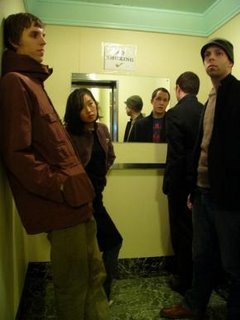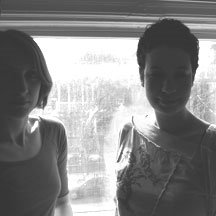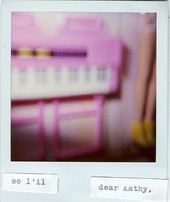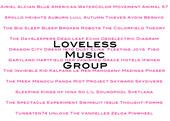
(this drawing is by Merry Parker)
I’m fond of saying when I realized I couldn’t actually become a super-hero I decided to become a musician. See, I’d discovered the way. The way to transform freakishness into something that benefits humankind (or at least makes me feel better ).
I think it had something to do with the dreaming, the getting lost in the dreaming, which to this day still interests me more than reality. And the dreaming actualized, the inspired dreaming baked to perfection (that is, inspiration [not flawless, but inspired]), is the dream incarnate. Which is to say, music.
Now back then, I suppose something about my reality (which I wont’ bother to go into here [fodder for a million other essays]) was not quite blissful enough to get lost in. I sought escape. And what better world to escape into than one where it’s participants wear tights and have super-powers like flying or super-strength or teleportation or telekinises or invisibility or ten million other powers that were so much cooler than school and family and boredom and people all around you you didn’t quite relate to.
This was the key you see. The ‘didn’t quite relate to.’ The powers and the inherent freaks who possessed them I could relate to. Today my love of comic books has completely faded. I tried picking up a few I had left the other day (~the other 5000 I used to have were given away by my mother to children in a cancer ward in a hospital,which, how can you get mad at? [despite having the whole original Phoenix saga from the X-men in the ‘70s]), and the magic just was not there. I found the plots pretty horrible Hollywood basic, and the talk all machismo (even from the women), shallow, and stupid. What was it I had originally fallen in love with?
In Greil Marcus’ ‘Invisible Republic’ he talks about Camile Paglia and how she made some comment in one of her sex essays on never being able to escape the fascism of the bodies, and he makes the point that, with 78s in the late ‘20s in America, people suddenly could psychicly escape their bodies, they would become just a voice or a sound on a record and exist outside of time and not only that, but whoever was listening could escape to that place, and that escape, that place outside our bodies, was the place I wanted to escape to too. (And by escaping my body, maybe I secretly hoped I’d feel comfortable within it as well.)
Now, you could argue that painting, TV, and film, all offer us this same escape, but to me, none does it better than music because music is sensual (~at least in the forms I like), and actually touches you, both mentally and physically, comes out the speakers and hits your ears and the air and caresses your body, becomes an actual erotic creature with the pressing of the play button. You can make love to music just sitting there (though if you dance, perhaps your love will be more erotic [yet psychic journeys inside the head can be just as gratifying (although some noise afficiandoes prefer to just let walls of sound whip them around, which for masochistic or sadistic reasons...well, you understand)]).
But I digress, freakishness makes escape an option only for so long before you feel unconnected. And you want (more than anything) to feel connected. So you transform your freakishness into something that fights back (i.e. super-powers). You don’t have to escape. You can transform feelings into sound, and this ability is a super-power.
Music makes mere mortals into super-heroes (or villains) by transforming them from dorks into stars or mythological beings. Often this happens through teamwork. Dorks, nerds, geeks and dweebs form like Voltron to create wholes greater than the sum of their parts. In other words, bands.
Just because in my adulthood (post an English degree which allows me to critically read the world into a million interpretations, but not much else), I no longer find comic books stimulating, doesn’t mean I don’t find what I initially found in comic books stimulating. That is to say, super-powers to this day still interest me. But once I came to the sad realization (or fab depending on how mature your point of view is) that a nuclear particle explosion wasn’t going to turn me into the Hulk or Spiderman, and that I hadn’t been born a mutant (sadly), and that I was just fairly normal, at least physically (although my vision wasn’t so hot, & my breathing was pretty crappy), I also discovered the video to ‘Sweet Child of Mine,’ by Guns‘n’ Roses.
Part II - Now, Guns ‘n’ Roses didn’t last long with me. I mean, I never seriously got into metal, and in fact prior to that had been much more into pop rap and top 40, but when Guns ‘n’ Roses came along somewhere in my pre-adolescent mind something clicked: I shall hypothesize today that what clicked in my 12-year old little brain was that Axl Rose, for all his moronic lyrics and baby behavior, had a charisma and snake-like charm (dance) which was super-human (as did everyone in Guns for that matter [sans Steven Adler]). Slash’s Thing (from the Fantastic 4) hiding behind a jungle of black curls, Izzy’s Keith Richards (who I would only later find out about, and initially, I thought Izzy was original) somewhat akin to Nightcrawler (of the X-Men, one of those sidemen who were actually cooler than the main character), Duff’s Colossas (of the X-men) or Human Torch (of the Fantastic 4), i.e. that loveable doof who kind of fell into the situation by accident, and Axl’s Cyclops (of the X-men) or Captain America or Wolverine or Spiderman or whatever.
Every band has this. People in bands play roles in the same way that people on super-hero teams play roles, so that Sonic Youth’s theoretical democraticization is kind of akin to the X-men, and Bob Dylan could be Captain America (his playing with The Band or The Dead being akin to Captain America moonlighting with the Avengers), and more fringe artists being, well, being one in a million mutants, Wolf Eyes music fitting easily into the comic book apocalyptic ambience of a world gone insane, and, well, like a bunch of mutants coming together to form a whole greater than the sum of its parts (cause like any good team they compliment each other through chemistry, cover up their individual flaws, and work together to create something none of the components could come up with on their own [why The Beatles were never as good solo, as well as The Stones, or the X-men]).
And the sounds the bands made, well, one could say Basquiet or Kandinsky or Bacon or Holzer make frozen human powers but, musicians are super-powers in action. When Steve Shelly (ofSonic Youth) or Jim White (of the Dirty 3) make a room explode, this to me is psychic bombs that are actualized (through the hitting of a drum).
When I Feel Tractor makes an entire room laugh at a line in a folk song he’s singing, this to me is the psychic ability to reach into everyone’s skull and unlock something that points to something deeper. (Different from spoken word poetry, backed with the power of an acoustic guitar and a melody, the line itself [often] takes on more power. This isn’t to demean spoken word, but only to say that in my experience I have found the power of music a deeper more mystical live experience.)
When Wolf Eyes creates primordial times before the dawn of humans out of analog electronics, this is noise explosions akin to Havoc (of the X-men)or Boom Boom (of the New Mutants) or Cannonball (also of the New Mutants), or even Magneto, exploding reality or blowing up your mind out of components from reality.
These are powers actualized. And the people who have these powers are personalities, which every good comic, and every good band, has. The reason the X-men were so popular had as much to do with the myriad personalities and complexities (at least to my little mind) of its characters, as to do with their individual super-powers. In the same vein, Jenifer Hermana & Neil Hagarty’s allure in the Royal Trux, beyond their music, was their eccentric insane characters. (This is also a syndrome we call ‘the rock star,’ and it has become more important to mainstream society than the actual music.)
Kim Gordan learned how to sculpt this. Kurt Cobain never really learned how to control his image, though he was most definitely a character. Bob Dylan did. Kim and Bob both stopped letting people in, giving off an icy detachment of cool that serves as both a given in the rules (~i.e. we want more what we can’t have) and an ‘I don’t give a fuck’ aloofness which, in a world of people tearing their hair out and having conniptions and breakdowns, we love all the more for these characters seemingly easy ability to keep it together. This is what we also loved about Wolverine and his cigar.
Kathleen Hanna, like Banshee (of the X-men), can shatter your psyche and ear drums with some of her screams,and is just as effective at getting inside your skull. She’s the opposite of Kim in many ways (though took a cue from Kim in her Julie Ruin days of how to step aside herself). We love her all the more for being willing to break down and let it all out, as Nina Simone so eloquently articulated. (This is the same reason we love Rogue [of the X-men], who kept her cool until you pissed her off, and then all hell broke loose.)
When you leave punk or indie or whatever, and go to jazz, this seems all the more heroic and super-human, whether John Coltrane or Eric Dolphy, Thelonious Monk or Charles Mingus, Albert Ayler or Nina Simone, Billie Holiday or Cecil Taylor, Ornette Coleman or Sun Ra, Alice Coltrane or thousands of other seemingly super-human musicians who, through sheer psychic will were able out of the barest of materials to make lush worlds of incredible beauty and color. (~I don’t say complexity because simplicity is often, like minimalist painters, so much more beautiful, and complexity is a road the prog-rockers can take. It’s more pleasurable [at least to me] to go back to the basics of the primal era [for the greatest explanation of this concept read Lester Bang’s essay ‘Of Pop & Pies, the Mass Liberation of America in The form of a Stooges review,’ from the book Psychotic Reactions and Carburator Dung]).
Your Beethoven’s and Bach’s are more like Superman or Dick Tracey, ~old school and not as interesting, at least to me. (Though great nonetheless.)
Originally in comic books women weren’t as involved, and women and minorities and outcasts often have so much more interesting voices because of their very outcastness (i.e. they have something to say about the actual society [more than Led Zeplin]). So that when Nina Simone sings ‘Sinner Man,’ or when Billie Holiday sings ‘Strange Fruit,’ or when Charles Mingus recorded ‘The Black Saint and the Sinner Lady,’ or when Bikini Kill recorded ‘Pussy Whipped,’ there was an urgency to it that came out of suffering and being an outsider and wanting to scream because of it (or weep, or laugh, or off oneself, ~all, simultaneously, always).
Those who felt death as well, music gave an outlet (or inlet [& escape and understanding]), so that unacceptable behavior was acceptable on a stage. Nick Cave could crawl around and whip himself into a frenzy of screaming and shouting and violence on-stage with the Birthday Party and the audience would cheer, whereas in Australia finding his father dead, he found himself in prison for similar behavior offstage. In this same way, Sunspot (of The New Mutants) could beat the shit out of people who made him angry instead of dealing with the much more difficult psychic pain he felt from his family life.
John Coltrane is an even more poignant example. Ravi Shankar never understood why John, a vegetarian in later years and someone who practiced meditation, could still be so violent and have so many demons in his music(express so much anxiety and rage), but then Ravi wasn’t living in America through the civil rights/Vietnam/feminist/queer liberation eras either.
And John’s horn was as potent an instrument of expressing (& inducing) life, death, peace & destruction as any this world has ever seen. John was one of the super-humans super-humans, and in this way, dealt with greater realms of the cosmos than most of us mere mortals or minor super-heroes.
When Metalux expresses to me how supremely fucked our insides are right now, and how expressing that insanity is somehow soothing, I’m like ‘right on ladies, you’s da bomb.’
Pt. III
To come back full circle, what we’re really talking about here is escape. Whether you’re performing the music or escaping into someone else’s world (i.e. music), what super-heroes and musician have in common is they show us the blueprint for a world that’s greater than this one. A world free of the banality of existence, where everything is vital and necessary, vibrant and alive (at least ideally [i.e. in the best music]). A world where we can transcend our daily humdrum (or agony) and escape to. And escape is the key word here. John Coltrane was screaming for a world that would not come, a world free of racial barriers, which sought to transcend the mess he found himself in. He was screaming to break through to the other side. He could see it, touch it, feel it, create it with his horn (free it). Express what was going on inside him and actualize it, create a place of feeling on the outside that reflected the inside and reflected the place he wanted to be, or was. The other side is the inside, externalized that taps into the place from which we all come. This is religious experience. Transcendental music was the key that let him in. Escape allowed him to travel through, to the other side, the inside.
Musicians are super heroes, somehow greater than this world. Not their actual selves, but the mythological selves they portray. The ones you don’t know personally, that you only know through the sounds on a record and its sleeve, and maybe seeing them live if they’re still alive. (One can only wonder what type of religious experience you would have if you found Blind Willie Johnson playing on some street corner ‘Dark Was The Night.’) You can project onto them whatever you want to. You can escape into these heliocentric worlds that are somehow less dim than ours,and eyes wide open, Aleister Crowly echoing William Blake, ‘when the doors of perception are cleansed people will see things as they actually are, infinite’ and, music cleanses these doors of perception, tunes us into alternate realities, infinite possibilities, our surroundings (our insides).
This escape takes you out of this world, but also sheds insight light on this one. It’s like asking yourself, ‘what’s going to make the world seem new and fresh again, how can I see the world through new eyes?’ For me, it was some ‘ole super-heros musicians, people who had extraordinary powers beyond mere mortals. Or even better, mere mortals realizing their extraordinary powers
There’s something incredibly exhilarating in that.
When I was young I wanted to see super-heroes beat the shit out of each other and fight because I didn’t know how to express my emotions yet. I’m still not sure I do, but now, I transform these emotions into sounds. This is my super-power. Something within you transformed into something actual. That you can hear and feel and touch. Not just a drawing of the thing itself, but, an actuality of the thing itself. There are other methods for transforming emotion, but, the others all involve two steps. From head to heart. Instead of just hitting you, physically, immediately. (I know one could argue all great great art hits you on a gut level, but, I’m talking the majority of the time the way the medium hits you.)
Music, the kind of music I like, is primal. Hits you hard. You become a super-hero, a metaphysical crime fighter at war within yourself. Fighting the chaos within to transform it into a form which provides a vehicle for your emotions, something tangible, perhaps even beautiful or, if not beautiful, at least vibrantly alive. (Which itself is beautiful.)
Super-villains and super-heroes are manifestations of what’s in your head, what’s fighting within your body, and how your body (or mind) deals with what’s out there, in the world. You can transform this stuff. You can let these confusing emotions out of your body. You can transform them into sounds. And repetitive hypnotic structure is good enough, is better than good enough, serves a therapeutic, ritualistic religious thing in me that seeks to transcend all this and simultaneously, through catharsis, make me feel better (and channel the religious mythological super wooha). Super-powers weren’t going to happen, other than the ultimate one, which is the ability to transform emotions into sound, and somehow, that’s good enough.
END







